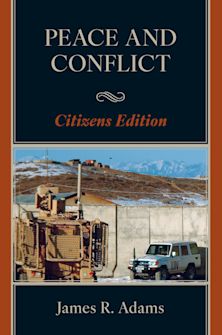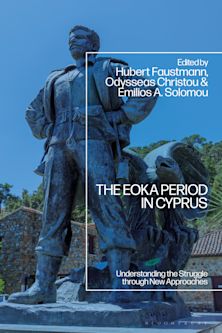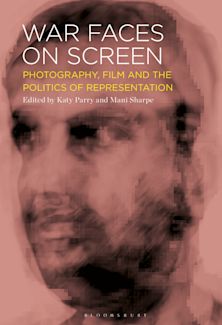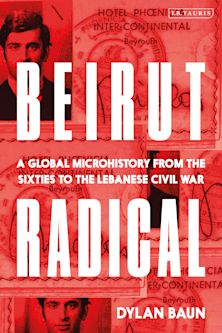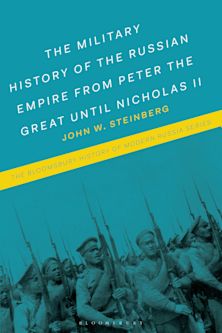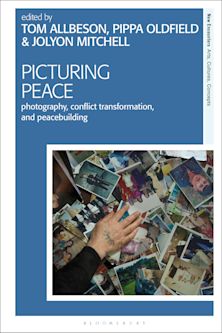Counterfeit Spies
How World War II Intelligence Operations Shaped Cold War Spy Fiction
Counterfeit Spies
How World War II Intelligence Operations Shaped Cold War Spy Fiction
This product is usually dispatched within 2-4 weeks
- Delivery and returns info
-
Flat rate of $10.00 for shipping anywhere in Australia
You must sign in to add this item to your wishlist. Please sign in or create an account
Description
A "savvy study" (Publishers Weekly) and a fascinating exploration of the roles many spy novelists played during World War II and the influence of intelligence work on their writing.
World War II deception operations created elaborate fictions and subterfuges to prevent the enemy from apprehending the true targets and objectives of Allied forces. These operations shortened the war considerably and saved countless lives-and they were often invented, proposed, and sometimes executed by creative minds that would come to be known worldwide for their spy novels.
In Counterfeit Spies: How World War II Intelligence Operations Shaped Cold War Spy Fiction, Oliver Buckton reveals the involvement of writers in wartime deceptions and shows how those operations would later impact their work. He also examines how the details, personnel, and methods of the GARBO network, Operation Mincemeat, Philby's treason, Operation Bodyguard, and more were translated from real life into spy fiction by these authors, necessitated by the Official Secrets Act which prevented writers from revealing their experiences in memoirs or other nonfiction works.
Featuring Ian Fleming, Dennis Wheatley, Graham Greene, Helen MacInnes, John Bingham, and John le Carré, Counterfeit Spies is a captivating examination of the brilliant novelists who took wartime espionage and deception to another level with their enduring works that continue to entertain and fascinate readers today.
Product details
| Published | 01 Oct 2024 |
|---|---|
| Format | Hardback |
| Edition | 1st |
| Extent | 292 |
| ISBN | 9781538183687 |
| Imprint | Rowman & Littlefield |
| Illustrations | 6 BW Photos |
| Dimensions | 0 x 0 mm |
| Publisher | Bloomsbury Publishing |
About the contributors
Reviews
-
Buckton has done his research well. In six concise and well-written chapters, he discusses major novels of top-ranking British Cold War spy novelists and describes myriad ways in which their plots were shaped by their authors World War II experiences…. Reading about the historical origins of spy fiction is often as interesting as reading spy fiction itself. Counterfeit Spies is a great example.
International Journal of Intelligence and Counterintelligence
-
Oliver Buckton's understanding of the world of the post-war spy novel is without parallel. He keeps everything in view as he looks back to how the actual intelligence work that many writers did during the war itself played out in their vision of the Cold War. This is essential reading for anyone who is interested in spy fiction, in Cold War politics, in the way espionage itself has shaped our realities.
Jay Parini, author of The Last Station and Borges and Me: An Encounter
-
The richly detailed readings and compelling insights of Counterfeit Spies offer a new and original approach to the study of espionage fiction by analyzing critical interrelationships between the fictional and historical plotting of espionage and counter-espionage. Buckton's interpretations of well-known and neglected writers and their novels demonstrate the cultural and historical significance of espionage fiction by revealing the deceptive and labyrinthine machinations that shaped critical outcomes of both World War II and the Cold War as well as the popularity and seriousness of espionage fiction.
Phyllis Lassner, professor emerita, Northwestern University, and author of Espionage and Exile: Fascism and Anti-Fascism in British Spy Fiction and Film
-
Counterfeit Spies adds much to our growing understanding of the link between espionage and fiction. Many classic British spy novels were written by former World War II intelligence agents with experience in espionage, propaganda, and deception operations. The fascinating conclusion Buckton draws from this fact is not simply that real spycraft makes for good fiction. Rather, Buckton's meticulous archival work shows, it was a gift for fiction-writing that made these novelists successful espionage agents in the first place.
Timothy Melley, author of The Covert Sphere: Secrecy, Fiction, and the National Security State
-
Oliver Buckton's captivating new study of cold war spy fiction works brilliantly on so many levels, booksellers are going to have a devil of a time categorizing it. Combining astute World War II history with probing literary analysis, his book chronicles the startling number of ways that popular fiction influenced reality, and reality impacted fiction. Like a masterful intelligence agent deciphering a classified telex, Buckton has unlocked the coded clues and shocking secrets hidden within some of the greatest thriller novels of all time, revealing them to be infinitely more intriguing than we ever suspected. It's impossible to imagine reading Fleming, Greene and le Carré the same way again.
Matthew Chernov, James Bond Radio
-
An adept coverage of the often fascinating imbrications of historical spycraft and the fictional works of Bingham, Fleming, Greene, Le Carré, MacInnes, Wheatley, et al., Counterfeit Spies solidifies Oliver Buckton's reputation as one of the foremost literary and cultural scholars of spy fiction writing today.
Ian Kinane, PhD, general editor, International Journal of James Bond Studies

ONLINE RESOURCES
Bloomsbury Collections
This book is available on Bloomsbury Collections where your library has access.












